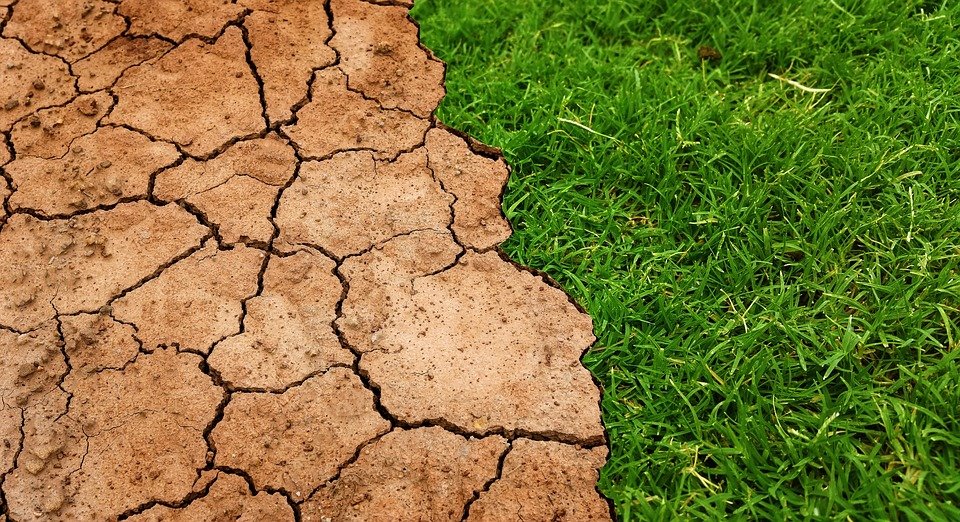by Christian Stöcker / spiegel.de
Many people imagine themselves in a world that has long since ceased to exist. A stable world with spring, summer, fall and winter. Predictable, plannable. Unfortunately, this includes large parts of the political elite.
“We’ll keep going until the last man, every molecule of hydrocarbon will be extracted.”
Abdulaziz bin Salman, Saudi energy minister in 2021.
“We will exploit it, we will extract it, we will sell it, we will monetize it.”
Didier Budimbu, the hydrocarbons minister of the Democratic Republic of Congo in 2022
The catastrophic effects of the climate crisis are now so abundantly clear that it takes tremendous effort to continue to ignore them or deny their cause (nevertheless, you will see this exemplified again in the forum accompanying this column). Spain and Portugal are drying up, the Rhine and Loire rivers carry so little water that in some places they look like desert or mudflat landscapes, and in large parts of Europe people groaned for weeks under unprecedented heat. The drought is causing fires, endangering crops and driving farmers and foresters to despair. Germany’s glaciers are melting toward their destruction.

Remember the people who thought Greta Thunberg was “hysterical”?
And that’s just the situation in Europe. In the U.S., for example, the giant Lake Mead reservoir in Nevada created by the Hoover Dam is drying up, exposing the skeletons of people murdered decades ago. Currently, the level is still at 27 percent. In neighboring California, the forest is once again on fire, and has been for weeks. More than 36 square kilometers of tree land have already burned.
Built on sand, literally
Elsewhere, there is not too little water, but too much. In Florida, for example, many homes are already barely insurable, if at all – not only, but also because of the threat posed by rising sea levels and increasingly extreme hurricanes. In total, the Union of Concerned Scientists noted back in 2018, at least 300,000 private homes and 18,000 commercial properties in the U.S. are at risk of “permanent flooding” by 2045. The total value of coastal buildings literally doomed was estimated at more than $130 billion at the time. This does not include expected hurricane damage.
On the other side of the globe, in Korea for example, there is also too much water right now. Seoul has just experienced the heaviest rainfall in 115 years. At least nine people died. South Korea’s President Yoon Suk-yeol said, “We simply cannot continue to call these extreme weather patterns unusual.”
“The new normal? Far from it
The man is right. What’s happening right now is no longer unusual. But it’s also not “the new normal,” as some are reading or hearing more often right now. We are dealing with something completely different.
Many people still don’t seem to be aware of the climatically peaceful, extraordinarily philanthropic time in which human civilization was born. And that this peaceful, stable time is just ending. Caused by us, mankind. More precisely: caused mainly by the present and historical population of the so-called Global North in the really tiny period of a good 200 years, viewed in terms of Earth history. The only events that can be halfway compared to the pace of destruction caused by human activity are asteroid impacts.
Like the one that wiped out the dinosaurs 66 million years ago. It caused the fifth mass extinction in history. We are now causing the sixth.
From cold store to greenhouse in the blink of an eye
The so-called Holocene, with its stable, predictable, human- and civilization-friendly climate, began a little less than 12,000 years ago, at the end of the last ice age. But we still live, even if most people don’t perceive it that way, on a “cold storage Earth,” as paleontologist Thomas Halliday calls it in his fascinating book “Otherlands,” which deals with the transformation of ecosystems over the course of Earth’s history.
A cold store, that’s a world with frozen polar caps. The other end of the spectrum is a “greenhouse world,” without ice, warmer, and of course much wetter. The Earth fluctuates, usually very slowly, between these two extremes, each of which is then relatively stable. The last “hothouse” phase ended well over 30 million years ago.
Constant instability guaranteed
This most recent icehouse phase, however, which includes our cozy Holocene, is now coming to a rather abrupt end – in terms of Earth history – unless we finally act decisively and much more quickly. A North Pole that is always ice-free for parts of the year has long been in sight: A new study from Finland has just shown that the Arctic regions are warming four times, in some places even seven times, faster than the rest of the planet. And Antarctic sea ice is also known to be melting, and faster than expected. All of this is having an impact on global weather. Already.
This, by the way, will have consequences that should give pause for thought to right-wing politicians with migration fears in particular, who often prefer to prevent climate policy. To quote the paleontologist Halliday: “In a dramatically changing environment, mobility is crucial for survival. Somewhere on the continent there will always be a refuge.”
We have put the world in a state that guarantees constant instability and thus huge movements of refugees. And for the time being, it will continue to get warmer in any case. The earth we live on now is a different one than that of all generations since the beginning of human civilization – but in the minds of many people, this fact does not yet seem to have arrived. Unfortunately, this also applies to the minds of many politicians. Only a few years ago, it was possible to ignore the climate crisis – and the equally catastrophic extinction of species – and to put consistent action on the back burner.
Psychological Herculean task
Most people who are currently in government or run companies, not only in this country, belong to the generation for whom ignoring, suppressing and often even denying the approaching catastrophe has become second nature over the years. Admitting to oneself and to others such a huge, such a monstrous mistake is a Herculean psychological task. Especially since the responsibility seems to be spread over so many shoulders. Why me of all people, why us of all people?
Against this backdrop, the climate bill passed in the U.S. on Friday by the Biden administration, bitterly opposed by the Republicans, is actually a glimmer of hope. A soon-to-be eighty-year-old president, who for decades has been part of the political class largely responsible for the current calamity, has managed to make a difference. The law is at least a ray of hope – worth hundreds of billions of dollars. But it also contains all sorts of concessions to the fossil fuel industries, thanks to coal-rich Senator Joe Manchin. And still no tax and no price on CO₂.
Apocalyptic death cult
Still, many experts agree, it will hopefully trigger a movement in various markets toward renewable energy, toward electric cars and better-insulated buildings. That, in turn, could trigger increased competition with China, which currently holds a lonely world record for renewable energy expansion. Above all, however, it is a signal: that the U.S., at least as long as the apocalyptic death cult called Republicans does not regain power, recognizes the climate crisis as a real, pressing threat.
All this, however, does not change the fact that the quiet times of the Holocene are over for the time being. Life on planet Earth will become increasingly unpredictable, dangerous and extreme in the coming decades. It would be nice if politicians like the German Chancellor, the Minister of Finance and the Minister of Transport would finally really understand this. Incremental governance with as little deviation as possible from the status quo is a miserable recipe in a time of tremendous upheaval.



